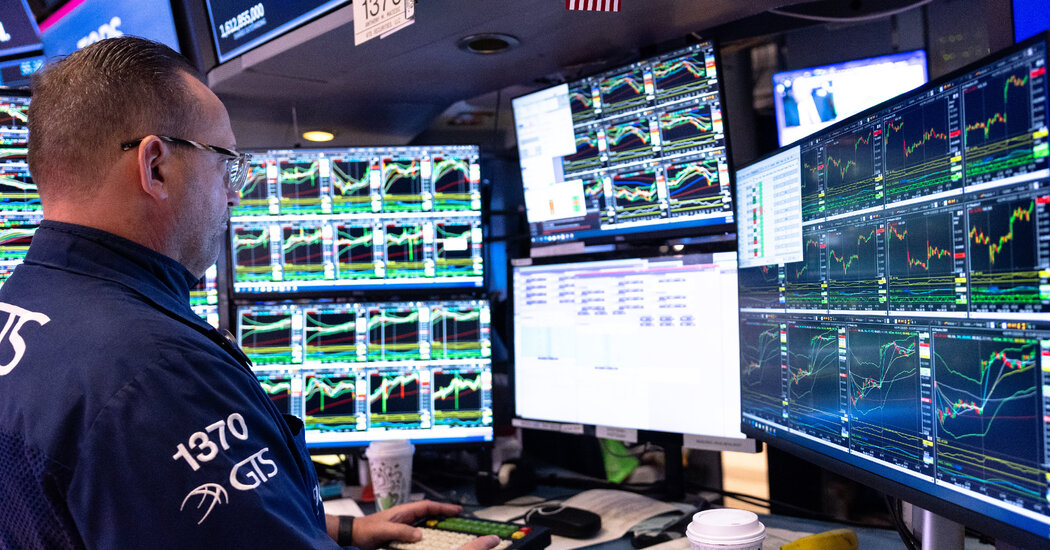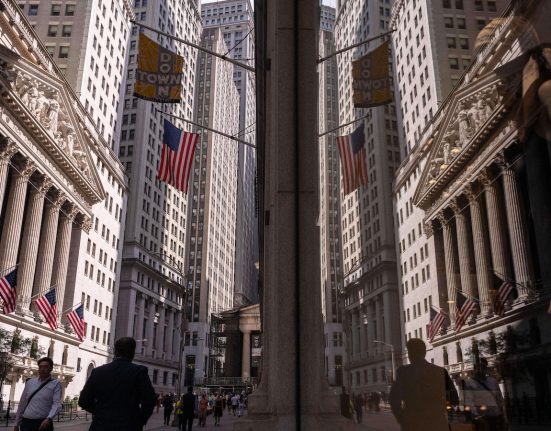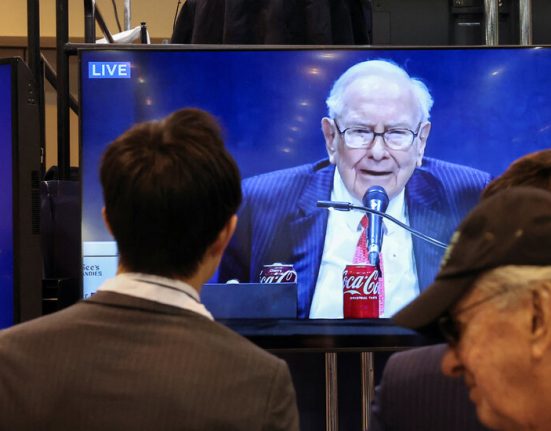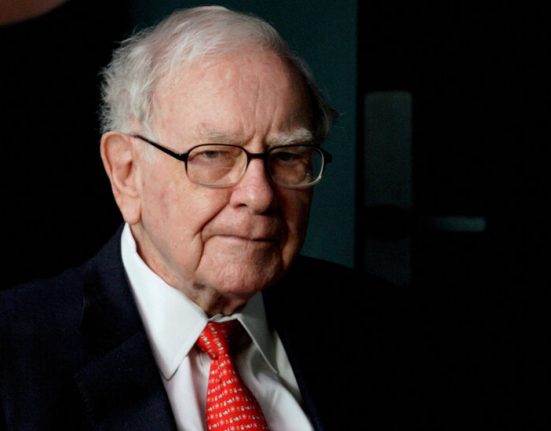Shares in automakers around the world wobbled on Thursday after President Trump announced plans to impose a 25 percent tariff on imported cars and some parts beginning next week.
The stocks of major Detroit carmakers, which build some of their vehicles in Canada and Mexico, were rattled on Wall Street. Shares in General Motors, which imports many of its best-selling cars and trucks from Mexico, tumbled more than 7 percent. Ford, which is less reliant on imported cars, fell almost 4 percent, extending its losses from earlier in the day, while Stellantis’s stock — the parent of Chrysler, Fiat, Jeep, Peugeot and Ram — was more than 1 percent lower for the day.
The turmoil was concentrated in the auto sector, with the broader S&P 500 index trading roughly flat before ending the day down 0.3 percent.
But shares in Tesla, which is expected to suffer less from tariffs than its competitors because it makes all the cars that it sells in California and Texas, rose about 0.4 percent on Thursday. Mr. Trump said on Wednesday that Elon Musk, Tesla’s chief executive who has taken a leading role in the White House, had not influenced his decision to impose tariffs.
Among the hardest hit shares on Thursday were those of carmakers based in Germany, Japan and South Korea, which sell many of their cars in the United States and rely on complex supply chains that cross borders, including from production sites in Mexico and Canada.
Earlier in the day, shares in the German automaker Volkswagen, Europe’s largest, fell 1.5 percent. Other German carmakers like Mercedes-Benz and BMW dropped 2 to 3 percent in European trading.
The stocks of the Japanese companies Toyota Motor, Honda Motor and Nissan Motor fell about 2 percent in Tokyo. Shares in Hyundai Motor and Kia, both based in South Korea, fell 3 to 5 percent in Seoul.
Shares in Tata Motors of India slumped 5.5 percent. The carmaker owns the British company Jaguar Land Rover, which imports all of the luxury cars it sells in the United States. The German auto manufacturer Porsche, whose stock dropped 2.5 percent, also imports all the cars it sells in America.
Nearly half of all vehicles sold in the United States are imported, as well as nearly 60 percent of the parts in vehicles assembled there. For many foreign carmakers, the United States is a critical market: Nearly one of every three Porsches, and one of every six BMWs, are shipped there. German companies also export about $8 billion in car parts to the United States.
“Since all countries in the world are affected, it is likely to be difficult for countries like Germany to redirect cars to third countries and sell them there,” analysts at Commerzbank wrote in a note.
BMW warned this month that it expected that trade conflicts could cost the company $1 billion this year.
The slump in auto stocks pulled down benchmark stock indexes in big exporting countries. The German DAX index fell nearly 1 percent, while the South Korean KOSPI dropped 1.4 percent. In Japan, the Nikkei 225 closed 0.6 percent lower.
There were signs of jitters in other markets. The price of gold, which has been setting records as investors sought a haven from trade and geopolitical uncertainty, jumped more than 1 percent, approaching $3,100 per ounce. Analysts at Goldman Sachs raised their forecast, saying they expected gold to hit $3,300 by the end of the year.
U.S. Treasury yields ticked higher, as traders considered the inflationary impact of the tariffs, which could add thousands of dollars to the cost of imported cars. The yield on 10-year bonds rose slightly, to about 4.37 percent.
Along with Mr. Trump’s new tariffs, investors weighed data released on Thursday indicating that the U.S. economy remains healthy. Initial applications for unemployment benefits inched down last week, the Labor Department reported, a sign that the labor market is still solid. The Commerce Department also revised up gross domestic product growth for the last three months of 2024, to a 2.4 percent annualized pace, up from the department’s previous 2.3 percent estimate.
On Wednesday, Mr. Trump said he expected the auto tariffs to be permanent. Still, many financial analysts believe that the economic damage could be so severe that the tariffs would be scaled back.
“We think it is unlikely that the new tariff regime will last, given the widespread damage they will do across industries and the inflationary impact on the U.S. economy,” analysts at Bernstein wrote.
But investors have recently been taken aback by the administration’s aggressive trade approach, which also includes steep additional tariffs on all U.S. imports of goods from China and a large share of goods from Canada and Mexico. Mr. Trump and his advisers have said that a recession is possible, stressing that the short-term pain would be worth it in the long term.
“It is hard to judge the duration of such chainsaw-like policies if these cause a market slump that does not appear to be transitory,” the Bernstein analysts added.







